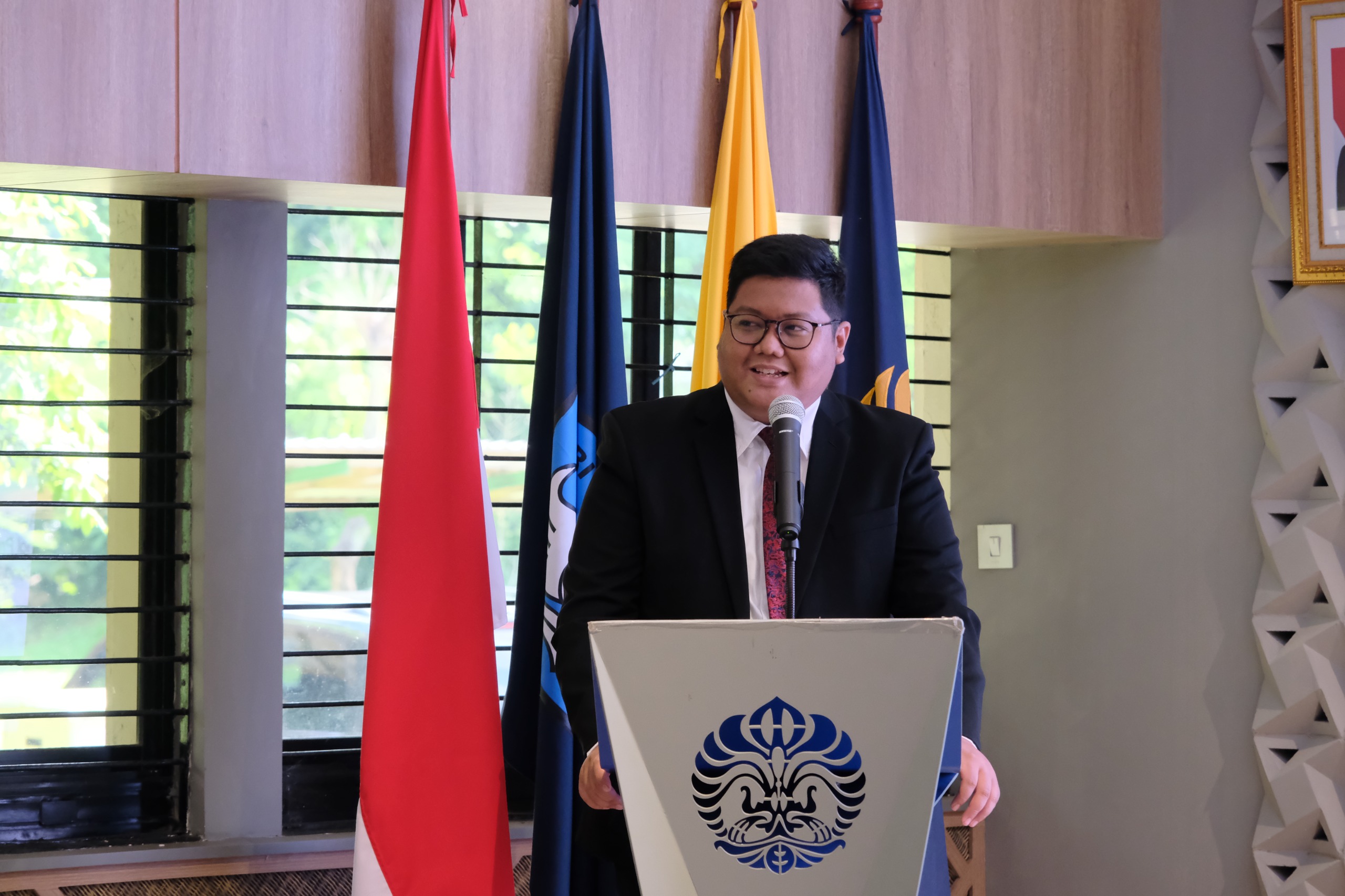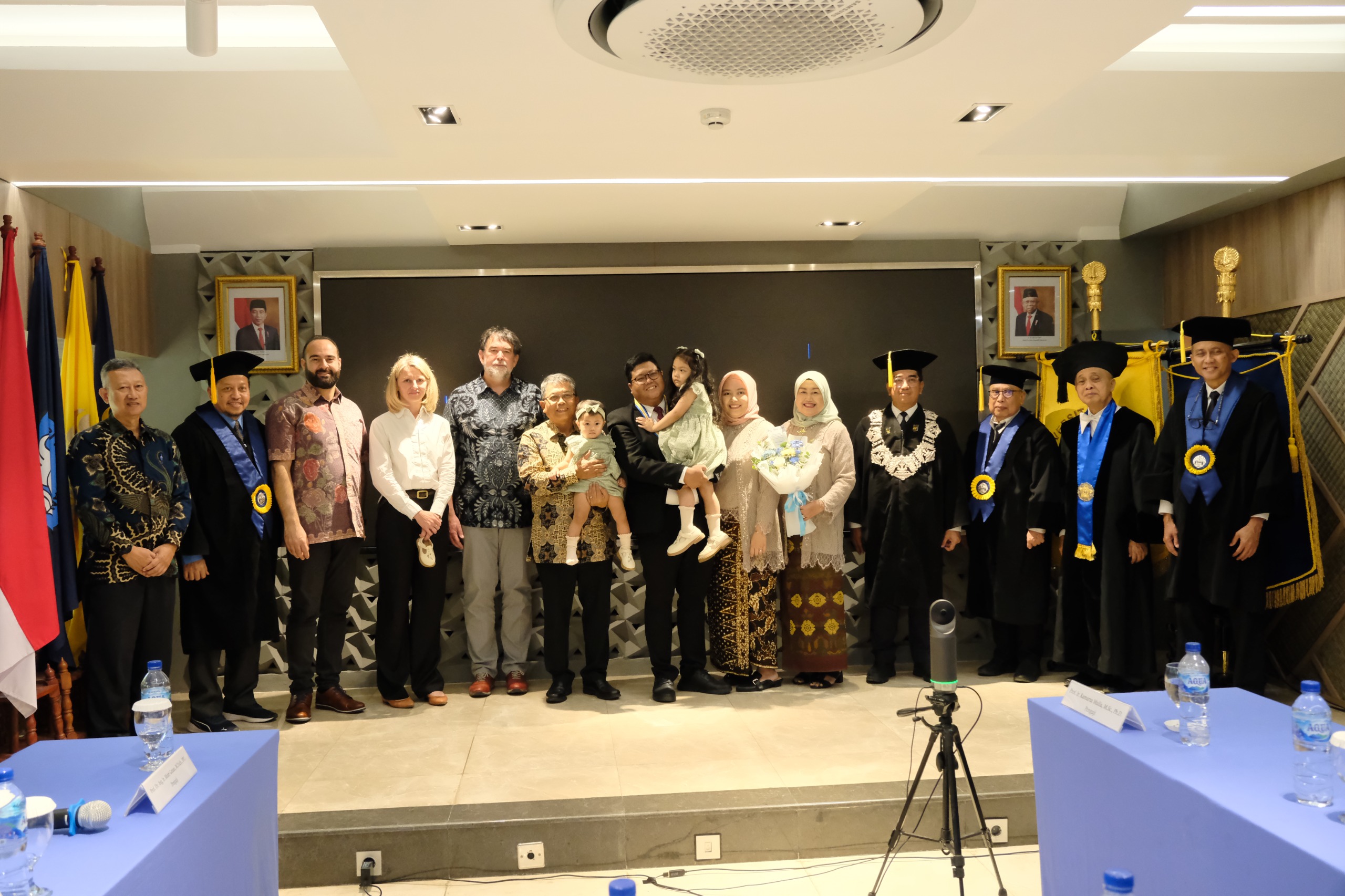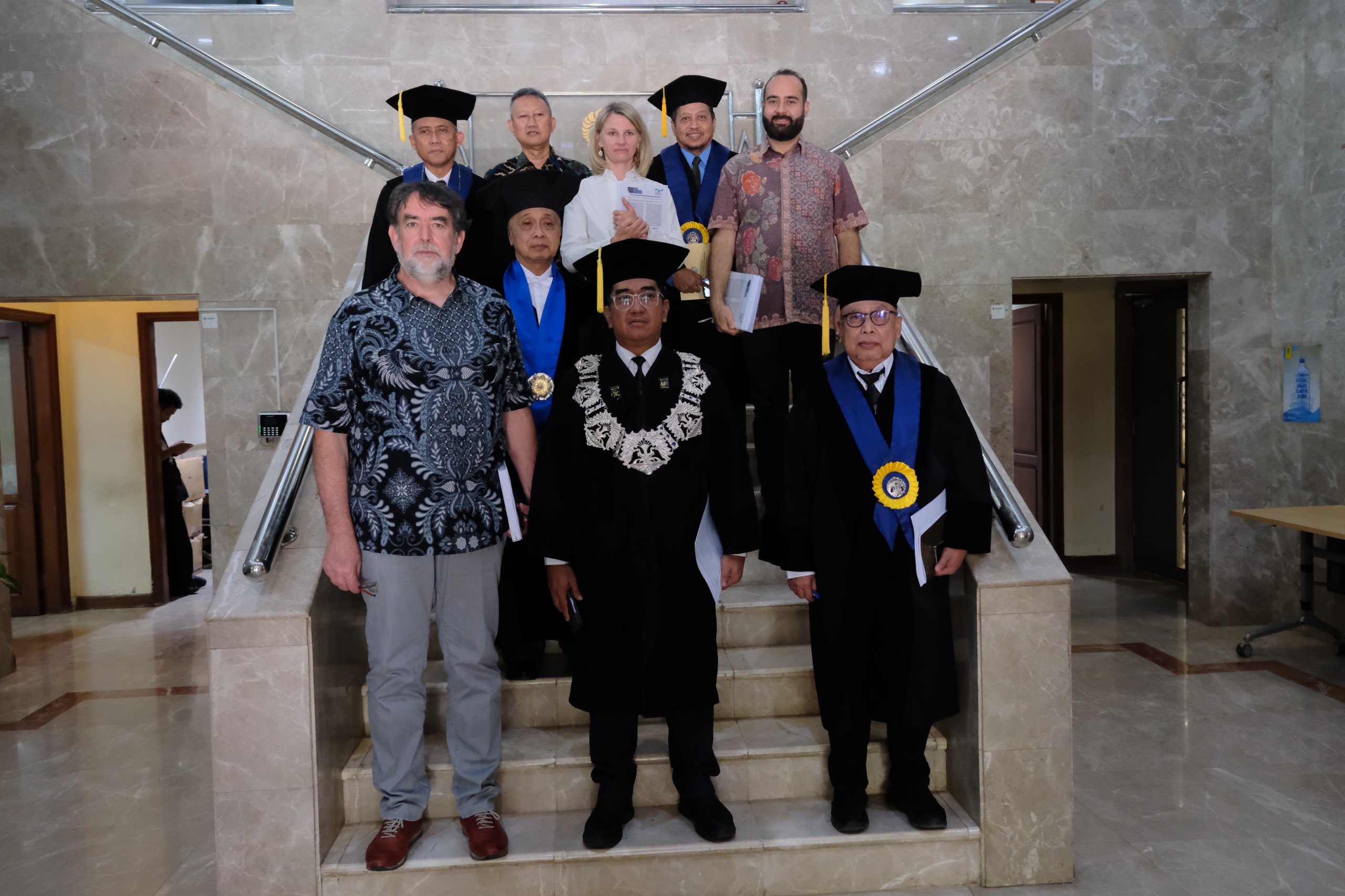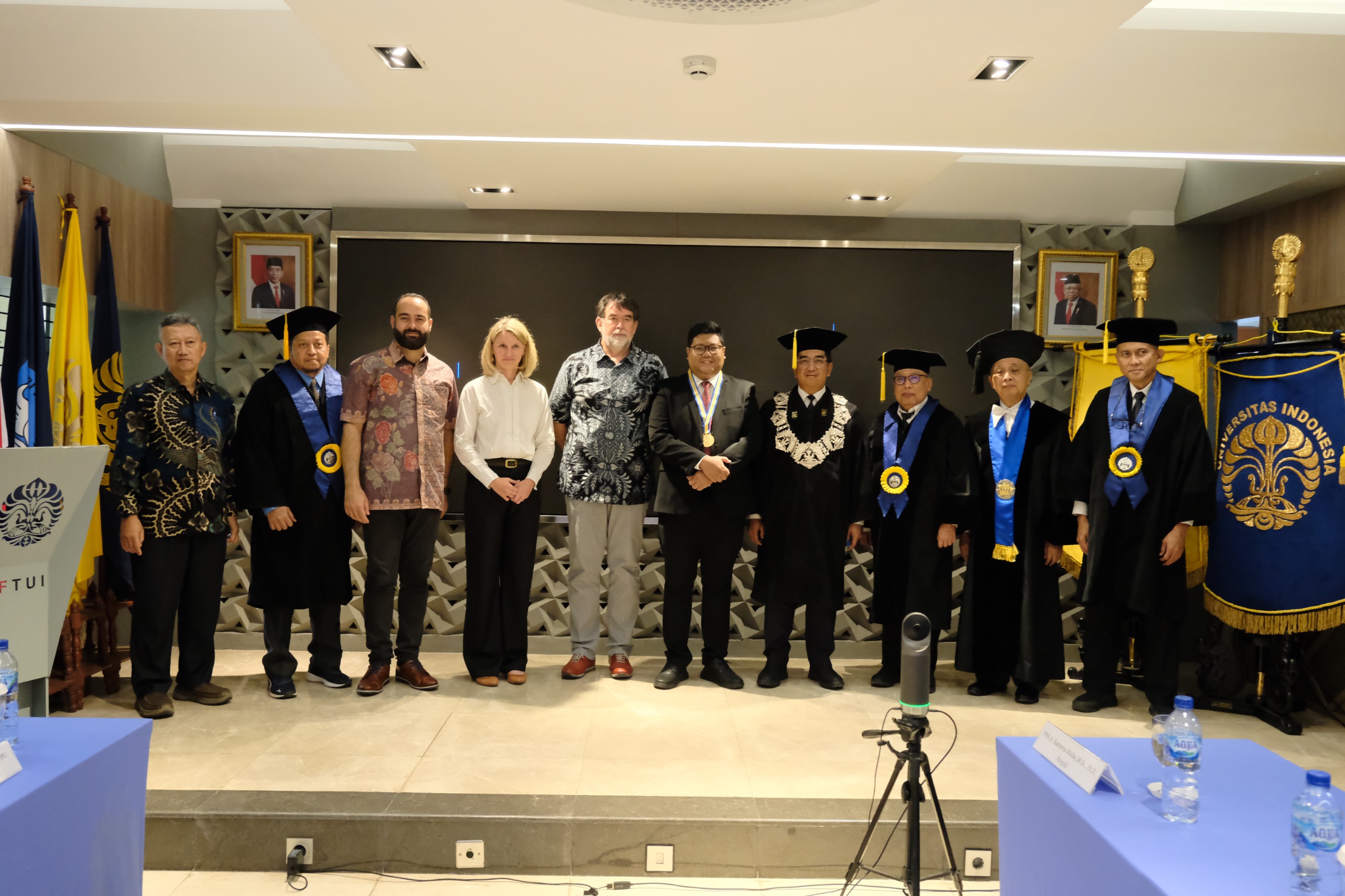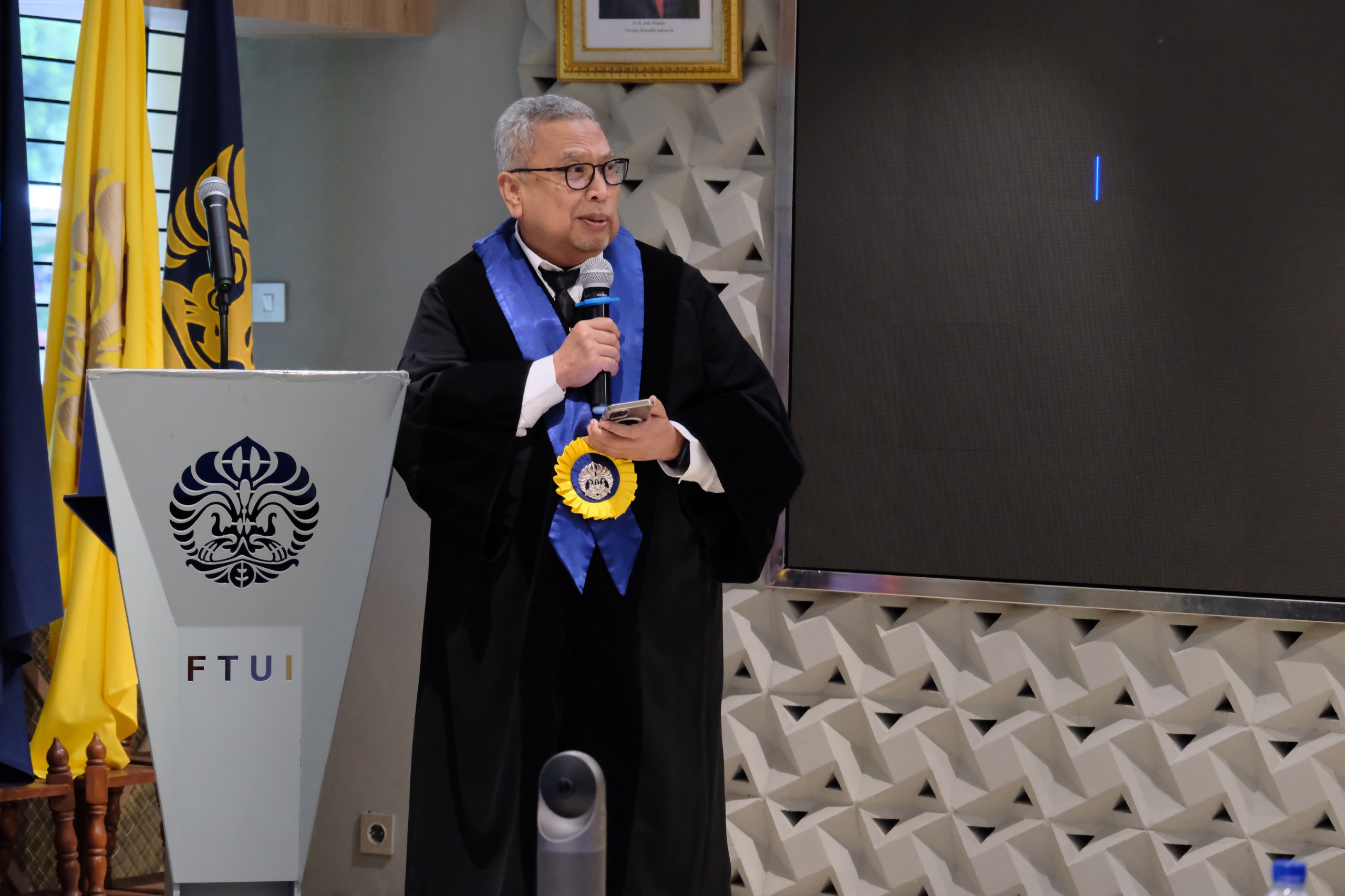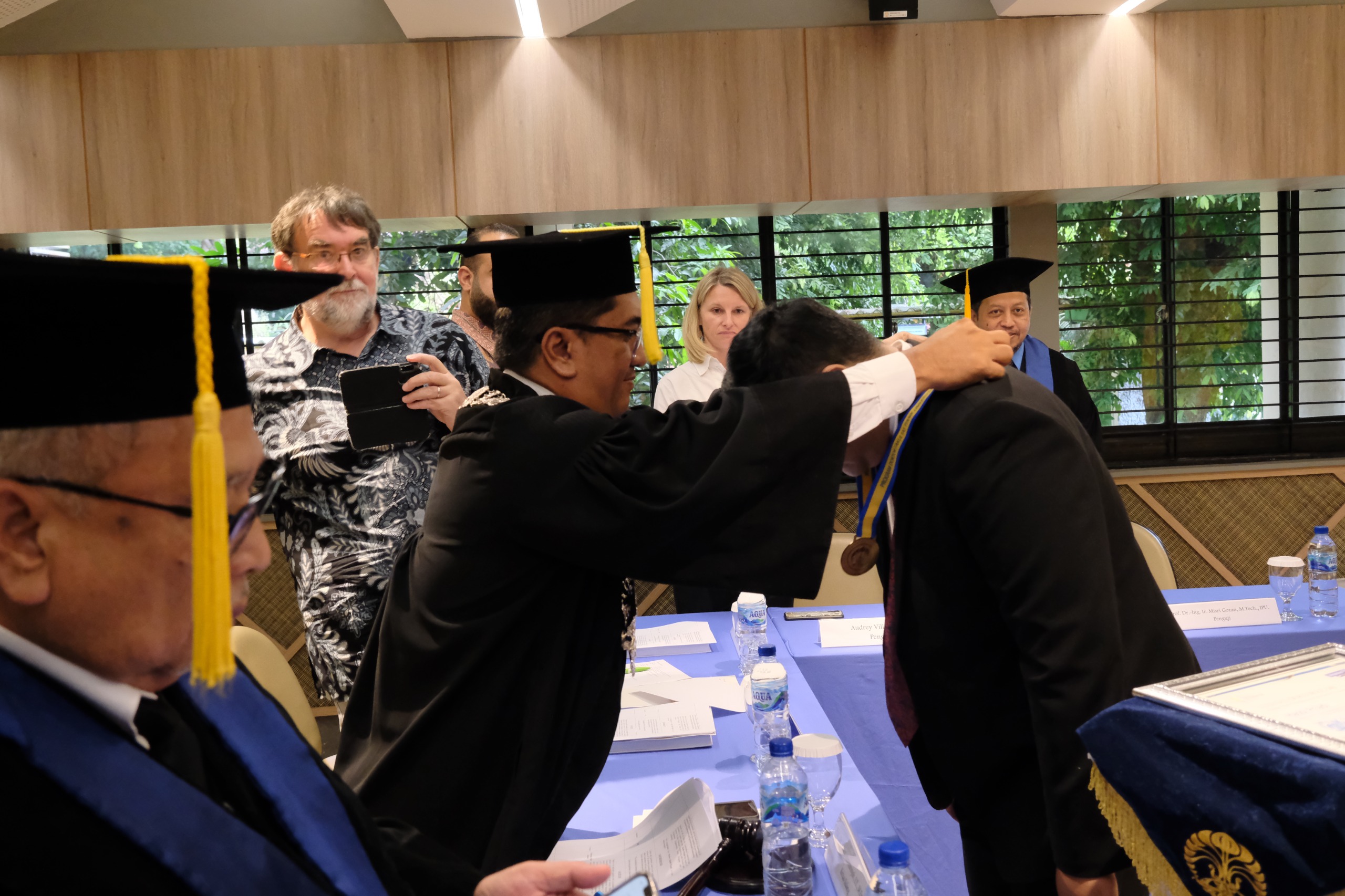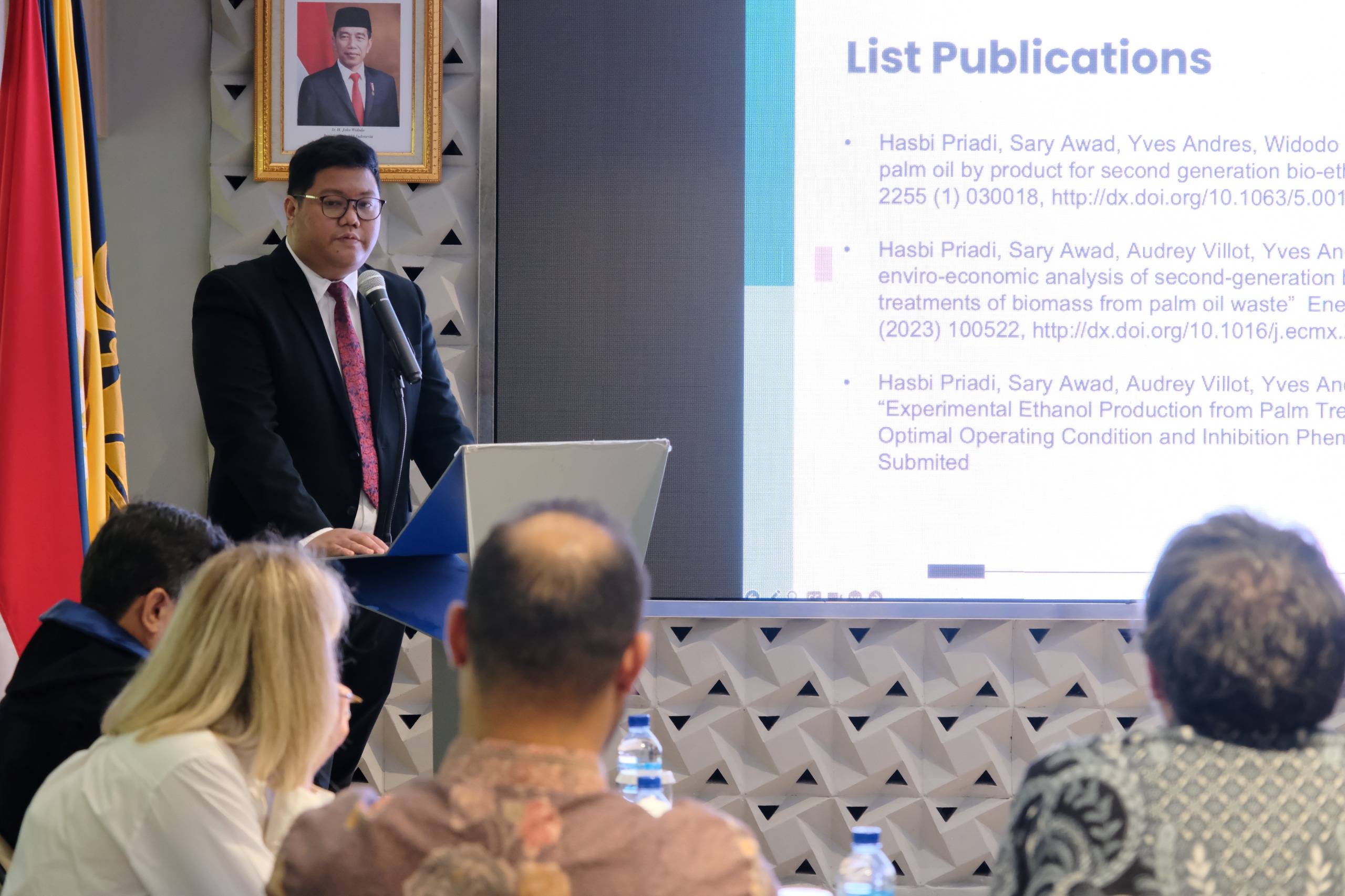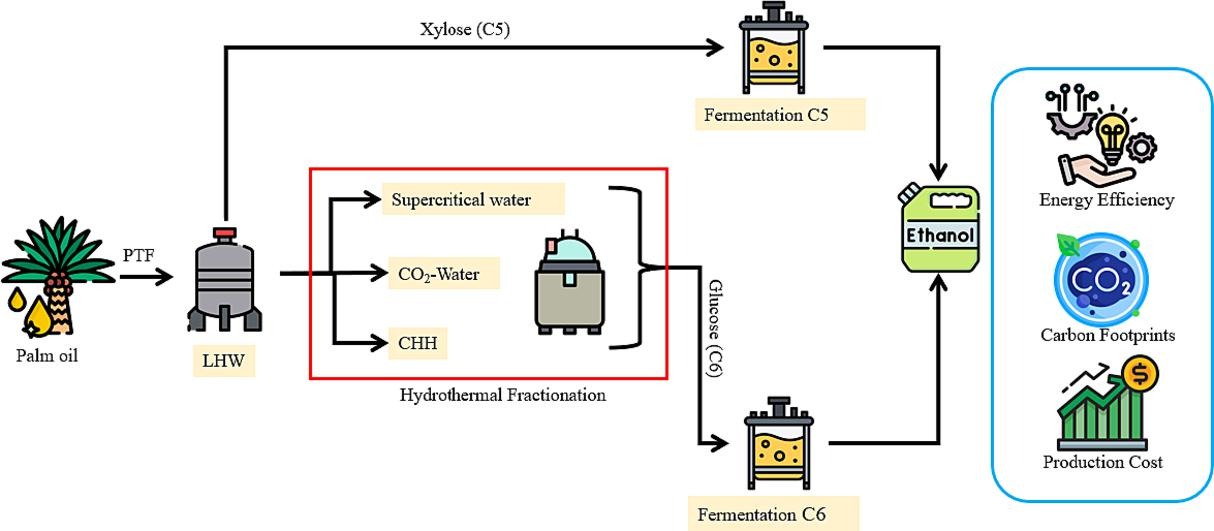Hasbi Priadi, a participant in the Doctoral Program of the Chemical Engineering Department, Faculty of Engineering (FT), University of Indonesia (UI), successfully defended his dissertation on the experimentation and modelling of hydrothermal fractionation using palm oil by-products for bioethanol production, in an open doctoral promotion session at FTUI (June 26). Hasbi graduated with a GPA of 3.96 (summa cum laude). This success earned him dual doctoral degrees from FTUI and Institut Mines-Télécom (IMT) Atlantique, France. He is the 73rd Doctorate graduate from the Chemical Engineering Department and the 549th in FTUI.
Hasbi is the first student in the Double Degree doctoral program between FTUI and IMT Atlantique, France, focusing his research on Biofuels and Biomass Valorization. “In 2018, I was accepted into the Doctoral Program at FTUI and began my studies there. From 2020 to 2022, I continued my doctoral research in the Department of Energy System Engineering, IMT Atlantique, specifically at GEPEA (Process Engineering for Environment and Food), part of the VERTE research group (energy/material recovery of residues and treatment of emissions) and this lab is part of CNRS (French National Center for Scientific Research),” said Hasbi.
In his research, using the Analytical Hierarchy Process (AHP), Hasbi found that biomass availability from palm oil production is the main determining factor in bioethanol production. This process identified empty palm fruit bunches as the most potential lignocellulosic raw material with a factor weight of 39%.
Lignocellulosic biomass, such as wood materials and agricultural residues, are the most abundant and rapidly renewable resources, producing over 200 megatons (Mt) annually. Indonesia is one of the countries with huge lignocellulosic biomass potential. One of the potential lignocellulosic biomasses is based on palm oil processing. In 2021, palm oil plantations in Indonesia reached 47 Mt, the largest production in the world (Ministry of Agriculture, 2022).
Waste from palm oil processing plants is usually chopped for compost and reused as an energy source for electricity and steam generation, consumed internally at the palm oil mill, or turned into value-added materials such as activated carbon. The number of by-products from palm oil processing in Indonesia can be processed as a renewable resource, with solid waste amounting to 10.4 Mt of Empty Fruit Bunches (EFB), 5.15 Mt of fibres, and 2.9 Mt of palm shells.
The identification results through the AHP method were then simulated for factory-scale bioethanol production using the Aspen Plus™ application. The simulation was conducted with three different thermochemical conversion methods: hydrolysis using water under supercritical conditions, supercritical carbon dioxide with water mixture, and hydrothermal hydrolysis using a catalyst. Additionally, environmental analysis with the Life Cycle Analysis (LCA) method and economic analysis were also conducted to determine the best method for bioethanol production. The comparison between catalytic hydrothermal hydrolysis and enzymatic hydrolysis showed that catalytic hydrothermal hydrolysis had lower production costs but higher environmental performance by 50%.
“Process simulation using Aspen Plus™ showed that catalytic hydrothermal hydrolysis is the best method in bioethanol production, producing 273 litres of ethanol per ton with an energy ratio of 2.2 and a minimum carbon footprint of 61 g CO₂/MJ in the cradle-to-gate scope, and a minimum ethanol production cost of $1.11 per litre. Although the Capital Expenditure (CAPEX) of catalytic hydrothermal hydrolysis is 1% higher, its variable costs are 23% lower compared to enzymatic hydrolysis,” explained Hasbi. In his closing presentation, Hasbi emphasized the importance of further process optimization to minimize the formation of fermentation inhibitors.
Dean of FTUI, Prof. Dr. Ir. Heri Hermansyah, ST., M.Eng., IPU., stated, “Hasbi Priadi’s research has great potential to bring real benefits to the Indonesian community. By utilizing abundant palm oil waste as a raw material for bioethanol production, Indonesia can reduce dependence on fossil fuels, decrease greenhouse gas emissions, and increase the economic value of agricultural waste. Additionally, more efficient and environmentally friendly bioethanol production can support the country’s efforts to achieve renewable energy and environmental sustainability targets. This research also opens opportunities for the development of green technologies that can create new jobs and stimulate local economic growth.”
This Doctoral Promotion Session was led by the Session Chair, Prof. Dr. Ir. Heri Hermansyah, ST., M.Eng., IPU.; with Promoter, Prof. Dr. Ir. Widodo Wahyu Purwanto, DEA.; Co-Promoter I, Prof. Yves Andres; and Co-Promoter II, Sary Awad, Ph.D. The examination team consisted of Prof. Ir. Arief Budiman, MS., D.Eng., IPU.; Prof. Khasayar Saleh; Prof. Ir. Kamarza Mulia, M.Sc., Ph.D.; Prof. Dr.-Ing. Ir. Misri Gozan, M.Tech.; and Audrey Villot, Ph.D.
***
Public Communication Office
Faculty of Engineering Universitas Indonesia

